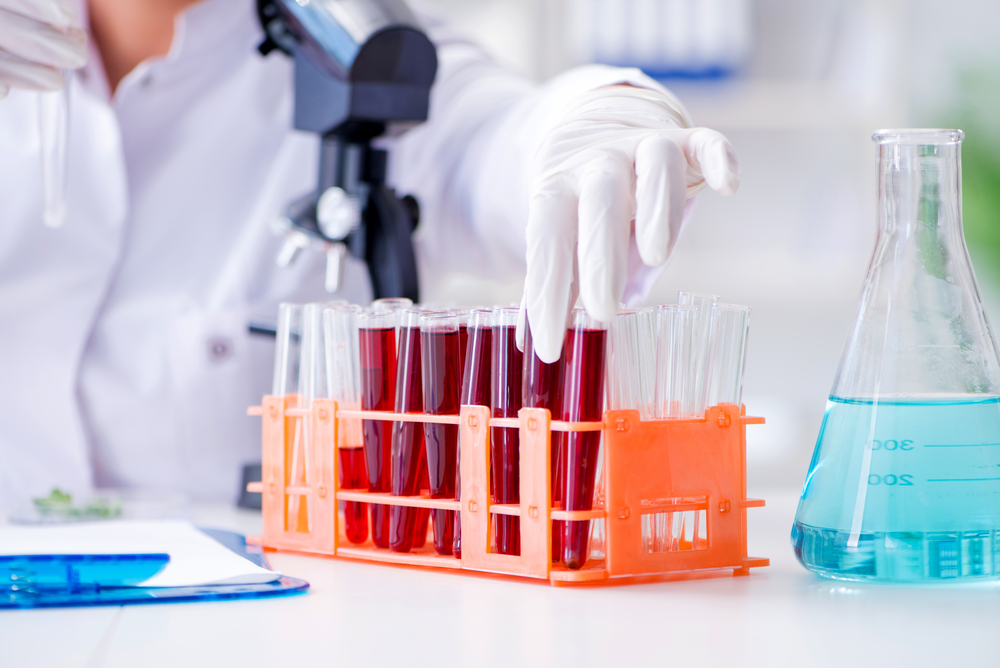
Difference Between IQC and EQA in Laboratories
Written by: UK NEQAS IIA, published on: 21 Jun 2024

Quality Assurance plays a pivotal role in testing patient samples for one or more analytes and is pivotal in ensuring that results are reliable and fit for purpose. Internal Quality Control (IQC) and External Quality Assessment (EQA) are two ways in which laboratories can build trust, and improve the reliability of results. In this article, we’ll discuss the difference between IQC and EQA, and the impact of both.
What is EQA?
External Quality Assessment involves an independent, external service provider that assesses a laboratory's testing abilities. This involves the analysis of identical samples in many laboratories and the comparison of the results with other testing sites in relation to a target result. The main purpose of EQA is to benchmark the laboratory against other laboratories to ensure the consistency and reliability of test results.
In an ideal world, a test result would be the same regardless of the testing location. EQA identifies where laboratories might need improvement and provides an objective evaluation, offering reassurance to both staff and service users by affirming that the testing conducted at their laboratory yields precise and dependable results.
A laboratory might undergo EQA for a variety of reasons, including to gain accreditation or certification, or because it is a mandatory legal requirement from local and national bodies.
What Does a Good EQA Scheme Look Like?
A good EQA scheme should offer the following:
- Provide an assessment of performance of an assay (precision/bias) with respect to other test sites at a particular moment in time or cumulatively across time
- The range and number of samples should ensure assessment of the assay performance across the entire measuring range and clinically relevant decision points
- The frequency of sample cycles should be sufficient to detect any assay performance issues
- Consistent reporting and a quick turnaround time to ensure assay performance issues don’t go unnoticed
- Comparing performance between laboratories and different assays and providing support and feedback to participating laboratories
- Involving a large number of participants to provide statistically robust data
- Accreditation to ISO 17043 to enable confidence to users of the high standard of service provided
Key Responsibilities of EQA
Key responsibilities of EQA are to:
- Identify poorly performing assays or tests within laboratories in a timely manner
- Provide advice and guidance on how to improve
- Assist with harmonisation and standardisation, working towards minimising variation between patient results obtained at different test sites
What is IQC?
On the other hand, Internal Quality Control (IQC) is conducted by the laboratory itself. IQC monitor reproducibility. It assesses whether the performance of an individual test is sufficiently similar to its previous performance. Most IQC procedures employ analysis of IQC materials and compare the results with predetermined limits of acceptability.
IQC focuses primarily on maintaining and improving the quality of testing processes and results within the testing site. Its goal is to ensure ongoing accuracy, precision and reliability of test results within the laboratory. IQC aims to deal with issues in real time, in order to strive for continuous improvement and compliance with internal standards.
IQC can also serve as a preparatory event for an external quality audit. It helps identify any non-conformances, allowing labs the opportunity to address them before the more critical EQA.
Key Responsibilities of IQC
The main responsibilities of IQC are to:
- Monitor assay performance on a regular basis
- Identification of any trends or shifts in IQC results that may impact patient test results
- Assess reproducibility
- Provide reassurance to the service provider that the testing systems are performing adequately
What Does a Good IQC Process Look Like?
For a successful IQC process, the laboratory should consider the following:
- How many IQCs are required
- How often do the IQCs need to be tested
- Where should the IQCs be located in the assay run
- What predetermined limits are in place to detect any unsatisfactory performance
- Use of independent IQC materials i.e different to the assay/test manufacturer
- How will any findings from the IQC process be shared with the management and staff
Methods Used by EQA and IQC
EQA uses proficiency testing, which is where external providers send unknown samples to participating laboratories, and then perform tests and report their results back. The provider compares these results against expected values or results from multiple laboratories.
With IQC, laboratories conduct internal audits, where they evaluate the laboratory's procedures, equipment and performance against internal predetermined limits or standards.
EQA provides an independent assessment of performance of an assay (precision/bias) with respect to other test sites at a particular moment in time, or cumulatively across time. EQA is done periodically and retrospectively, hence the term ‘assessment’ rather than ‘control’. In comparison, IQC results are performed internally in real time and provide a measure of assay performance on a more frequent basis.
It is important to note that IQC is not a substitute for EQA.
What are the Benefits of Quality Assurance?
IQC and EQA hold many benefits, including:
- Improving national and local standards
- Providing management with insights into their performance
- Revealing areas of difficulty
- Demonstrating a commitment to quality to customers
- Providing evidence of performance for accreditation bodies
- QA measures can decrease the need for retesting, reduce errors, and lower operational costs associated with repeat analyses
EQA at UK NEQAS IIA
We’ve explored the difference between internal quality control and external quality assurance, and outlined the characteristics of each. Both IQC and EQA are important processes in helping laboratory’s build trust and enhance the reliability of their results.
At UK NEQAS IIA, we are a global EQA proficiency provider, offering an independent EQA service. You can register with us here today, and access our range of educational resources within our Digital Academy.

